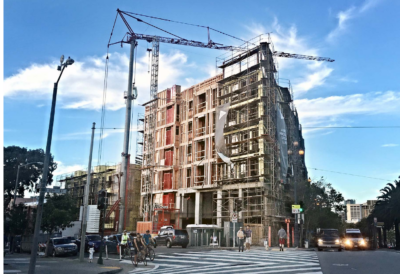A way to build roads, bridges on time, on budget
(Bay Area Council Economic Institute Senior Director Sean Randolph wrote the following piece for the San Francisco Chronicle)
Bay Area residents and tourists breezing between the Golden Gate Bridge and San Francisco on the new Presidio Parkway (formerly Doyle Drive) may appreciate the now-smooth drive, paired tunnels, and detailing inspired by the Golden Gate Bridge. Proponents of open space will appreciate how the tunnels soon will be buried, allowing the Presidio’s Parade Ground lawn to flow over the parkway to Crissy Field and the bay. Drivers will be motoring on a seismically safe structure that replaces one that was at serious risk of collapse in the next big quake.
What they may not perceive is the struggle it took to get it built, and the innovative financial and management model that it represents.
In 2010, the San Francisco County Transportation Authority, in partnership with Caltrans, chose to develop the parkway as a public-private partnership, in which a consortium of private companies bid to build its second phase (the first being done by Caltrans). The winner would complete the project and operate the parkway for 30 years, after which maintenance would return to the government agencies. The deal included incentives, such as the contractor getting paid only when the construction is fully completed, and financial penalties if ongoing maintenance is not performed to specification. The Golden Link consortium won.
It could have delivered the project earlier if the public employee union representing Caltrans engineers hadn’t challenged the deal in court. While this lawsuit delayed the project by more than a year and increased its cost by more than $25 million, the second phase of the parkway was still completed on time and on budget. Preliminary estimates are that over its 30-year lifetime as a public-private partnership, the project will have saved taxpayers nearly $180 million over traditional public-sector procurement methods.
The public phase of the parkway project was completed almost two years late.
California faces an infrastructure finance deficit of as much as $700 billion over the next 10 years. State and local agencies should take note — in an era of constrained public resources where waste and inefficiency come with a heavy price (witness the eastern span of the San Francisco-Oakland Bay Bridge), California needs tools such as public-private partnerships to develop infrastructure.




